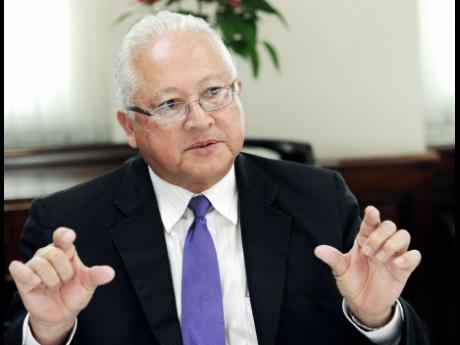Gangland - More than 250 criminal gangs hurting Jamaica; Justice minister chides cops over failure to nab more gangsters
With a mere three gangsters convicted under the anti-gang legislation since it was passed more than two years ago, Justice Minister Delroy Chuck is dismissing claims that flaws in the law have reduced its effectiveness as a crime-fighting tool.
According to Chuck, the low conviction rate under the anti-gang legislation is not the result of ineffective legislation, but rather the twin problem of fear on the part of witnesses and inadequate police investigation.
"If the police concentrated more on intelligence gathering, on spearfishing rather than linear fishing, the likelihood is that more of these gangs could be dismantled," argued Chuck at a recent Gleaner Editors' Forum.
"The fear factor is so great in the society that witnesses, even though they are willing to give evidence, are not prepared to come to court to speak on the evidence they have," added Chuck.
For years, members of the Police High Command clamoured for the Criminal Justice (Suppression of Criminal Organisations) Act, better known as the anti-gang legislation, and argued that this would significantly boost the crime-fighting arsenal of the force.
The cops argued that the legislation would allow them to lock away gang leaders and the members of these criminal organisations who are to be blamed for majority of the murders committed across the country.
Police data indicate that of the just over 1,350 murders recorded last year, 65 per cent were linked to gang activities.
MORE SHOULD HAVE BEEN DONE
With a reported 258 criminal gangs now operating in Jamaica, Chuck is adamant that more should have been done to dismantle their networks since the law was passed.
According to Chuck, the legislation allows for persons who are not necessarily engaged as gang members but who associate and give support to gangs operating in a community to be charged.
He noted that the fear factor among witnesses in the society is a major problem that militates against possible breakthroughs in cases before the courts.
The justice minister argued that greater efforts should be made by law enforcement to protect the identity of witnesses.
"It is important to emphasise that witnesses should know that when they give good evidence that their identity does not have to be revealed," said Chuck.
"This is where you hope that the police, if they get good information on gangs, that the identity of the witness can be secured and protected - now that is not the case.
"Far too many witnesses feel that if they reveal the information, that everybody in the community would know who gave the information," added Chuck.
Suggesting a new approach going forward, Chuck maintained that not only should the police protect the identity of witnesses in the trial of gangsters but "perhaps they (witnesses) should not give their names but only be known as witness (A) or witness (B)".
Additionally, Chuck said when the witness statements get to court and the defence attorneys see them, they should not be able to identify the witness, "but that witness can say 'yes, I can give all the evidence,' which will be revealed, and that witness should be able to give his evidence from a remote location with his voice being modified".
Chuck charged that if this protocol was followed, the police could dismantle more gangs.

